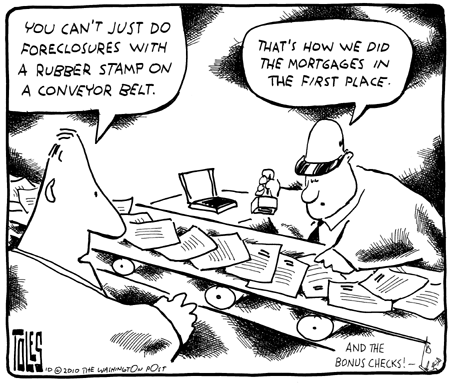The media’s ‘bad apple’ thesis no longer works. We’re seeing systemic corruption in banking – and systemic collusion.
 Naomi Wolf – Last fall, I argued that the violent reaction to Occupy and other protests around the world had to do with the 1%ers’ fear of the rank and file exposing massive fraud if they ever managed get their hands on the books. At that time, I had no evidence of this motivation beyond the fact that financial system reform and increased transparency were at the top of many protesters’ list of demands.
Naomi Wolf – Last fall, I argued that the violent reaction to Occupy and other protests around the world had to do with the 1%ers’ fear of the rank and file exposing massive fraud if they ever managed get their hands on the books. At that time, I had no evidence of this motivation beyond the fact that financial system reform and increased transparency were at the top of many protesters’ list of demands.
But this week presents a sick-making trove of new data that abundantly fills in this hypothesis and confirms this picture. The notion that the entire global financial system is riddled with systemic fraud – and that key players in the gatekeeper roles, both in finance and in government, including regulatory bodies, know it and choose to quietly sustain this reality – is one that would have only recently seemed like the frenzied hypothesis of tinhat-wearers, but this week’s headlines make such a conclusion, sadly, inevitable. Continue reading

 The Massachusetts attorney general has filed a lawsuit against five large U.S. banks accusing them of deceptive foreclosure practices, a signal of ebbing confidence that a multi-state agreement can be worked out.
The Massachusetts attorney general has filed a lawsuit against five large U.S. banks accusing them of deceptive foreclosure practices, a signal of ebbing confidence that a multi-state agreement can be worked out.